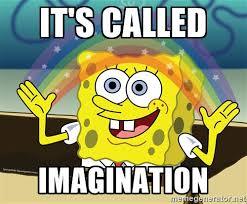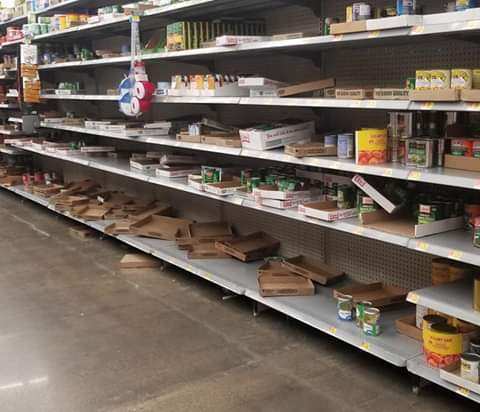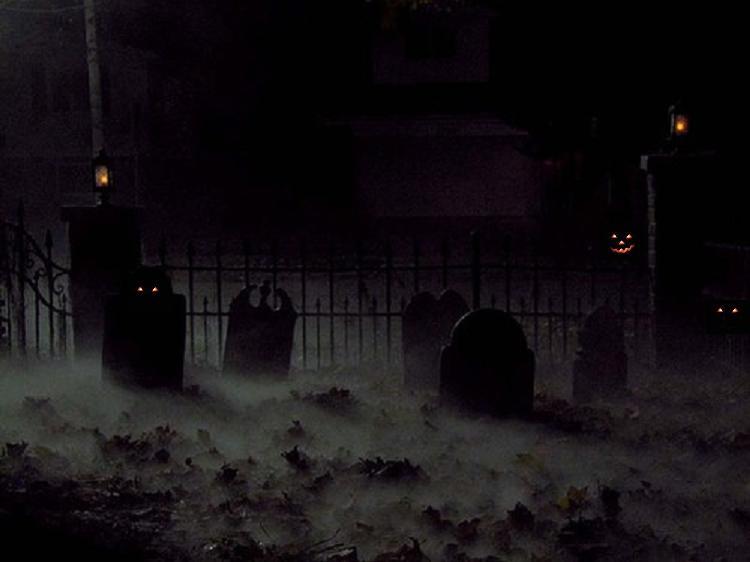Balanced imagination
There are people who have no imagination. They can't imagine anything but what is right in front of them right now.
Then there are those with overactive imaginations. They imagine-- or fall for-- everything, regardless of whether it's possible or realistic.
And many people exhibit both conditions simultaneously, but it depends on what you're talking about at the moment.
Statists can't imagine any way beyond how it's done now. Or how they mistakenly believe it is done now. "Who will build the roads?" is just one example of this trait.
Statists also have overactive imaginations-- they imagine that government actually builds those roads for example.
They imagine just about anything is permissible if it is "legal".
They imagine "taxation" can be ethical.
They imagine that warlords are lurking under every bush, and they imagine the government they support is somehow different than these imagined warlords in an important way.
As with all things, there's a proper balance. You need to have enough imagination to see beyond what is to what could be. Otherwise, you'll stagnate and die.
But your "could be" needs to be based on what's possible. I know some statists will argue that it's "not possible" to get rid of institutional archation... but that's just a lie. Of course it's possible, but you've got to exercise your imagination to find ways which could work without doing wrong to anyone's liberty, then test them. A lack of balanced imagination could make you give up or seek unicorns.

I feel like a SHTF event is imminent. Notice I don't say I think it is, rather it's just a feeling. Possibly triggered by the upcoming election.
I don't have a crystal ball. I'm almost definitely wrong.
If you can see it coming, it's not going to happen. That's almost a guarantee.
Just like the Coronapocalypse came at us out of nowhere, triggered by unexpected government overreactions to a fairly normal virus, a more serious event will also be a surprise. Consider the Coronapanic a practice run. It should have shown you the holes in your preps if you were paying attention.
I lucked out with the panicdemic because I was ready. Well, maybe it wasn't completely luck; I've prepped for years "just in case", and it finally paid off. I was pretty sure I wouldn't see it coming when it finally happened, and I didn't. But it didn't matter because I stay ready all the time-- and I have done so since well before the Y2K fizzle. I intend to be just as ready, if not more ready, the next time something ...

Sometimes it's good to just listen to people's stories without interrupting, even when you know the stories are nonsense.
My 2nd wife used to tell of a ghost that lived in her house when she was a kid. It was an interesting story even though I didn't believe it. I learned quickly that her family was very prone to believe anything as long as it fit with their magical worldview.
Other people tell me stories about beneficial things political government can do. These stories are no more true-- in the sense of being objective reality-- than ghost stories, but they can still be informative if you want to know which particular superstitions a person is living under.
Interrupt and you'll never hear the whole tale. Listen and you might be entertained by some fantastical tales of magical realms. Just don't bet your life on them being true.

My nature is such that I simply can't see government as a solution to anything. This puts me at odds with most of the rest of my species.
Yes, I think "social media" has become a horror. This doesn't mean I want government to regulate it; it means I think people who don't like it (or are too dumb to know not to take it at face value) should probably stop using it.
The same is true of so many other things I don't like.
Litter/pollution, scammers, sexual predators, abortion, animal cruelty, Hillary Clinton, poverty, drug abuse, pandemics, crime, and all manner of awful things.
I may hate them, but that doesn't mean I want government to step in. Look how often that has the opposite effect anyway; making the original problem worse-- or at least not solving it-- while also creating a host of new problems that never would have existed otherwise (anti-gun legislation being a perfect example).
And even if government intervention doesn't make this specific problem worse this particular ...












